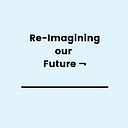Re-imagining the Power of Conversation
Can you remember the last time you had a powerful conversation? Whom was it with? Where? How did it start? What was it about? How long did it last? What did you feel? What did you feel afterwards? Why do you consider it “powerful”? What emerged from it?
Decades of armed conflict and violence have silenced residents in Colombia. Our vision was, and still is, to create spaces where people can break the silence.
What if we met daily with people from the community to have conversation? What if our public transportation had dedicated spaces to have conversations with strangers (and not be considered a creep or looked at with distrust)? What about cafes or markets? Spaces to talk with people outside of your echo chamber. Talk to people that see things differently than you.
What if schools regularly gave safe spaces to have conversations on the difficult topics of the world (both internal and external)? What if it weren’t scary to speak our truths? What if we had trust in our neighbours and people that we have never met before? What if technology were a tool for enlightenment (positive manipulation)?
Could you imagine if you got paid to have meaningful conversations? If it was considered part of your job?
What if we were open books and able to speak our minds? Put it all on the table. To have meaningful conversations, with our loved ones at dinner. Can you imagine watching the news, and during the news the broadcasters gave listeners information to ponder, think for themselves and talk about, instead of just giving them the answers? It is becoming increasingly clear (especially in the US) that most of the mainstream news outlets are extremely biased. If you watch Fox News you hear one thing and if you watch MSNBC you hear something else. Largely, the information we are taking in is someone else’s opinion, and perhaps even more troubling, that person’s opinion is strategically aligned with the stance of the given party.
Our conversations are guided by one-sided opinions. Why is it like this? What if it was not like this? Is this similar in schools, and curriculum (i.e. history class)? How can we make our conversations more diverse and inclusive?
Why has it become strange to have a deep conversation? Why has it become so hard to tell the truth to people?
It might be true that we can’t find time to have a deep conversation, but maybe it is now more urgent than ever to do so. Last week, the Colombian president avoided having a conversation with the largest movement of indigenous communities in the country, and that will continue costing many people’s lives. We must make time for these conversations, listen openly and let it happen for as long as it is needed, giving it all our attention. Only then will we be living well together.
If you think this post posed, or led to, too many questions we invite you to reach out to us, and initiate a conversation.
Lead Author: Sanjay Fernandes (4 paragraphs)
Sanjay Fernandes lives in Colombia and leads a small team of education and tech enthusiasts called SOLE Colombia. SOLE’s (Self-Organized Learning Environments) mission is to transform the future of learning through Colombia. SOLE is part of a global movement focused on using technology to empower groups to learn, collaborate, and most importantly, to solve real-life problems!
In Colombia, we have reached more than 450,000 people of all ages in 2000+ schools, public libraries, and public spaces in collaboration with the government, private companies, the social sector and citizens. This year, we partnered with the UN to celebrate its 75th anniversary with community conversations to imagine a more harmonious future. For the celebration SOLE Colombia is convening diverse participants from across Colombia to discuss issues such as gender, education, and the economy. As a result COVID-19, this has turned into the largest experiment in remote-conversation in the history of Colombia. We feel that this is very important for the national healing process that is needed to genuinely create a more compassionate future. Listen to the voices of Colombia here. Want to donate to SOLE Colombia? Donate here.
Shared mission, interest, curiosity? — sanjay.fernandes@gmail.com
Anchor Author: Daniel Rudolph
Daniel Rudolph is interested in exploring alternative, experiential learning opportunities for people of all ages. He is passionate about forming community, and building public spaces for meaningful, transformational gathering. Currently he is spending a lot of his time learning juggling and facilitating gatherings. He also enjoys writing and sharing poetry. Daniel is a very curious and playful person and is always open for creative collaborations.
